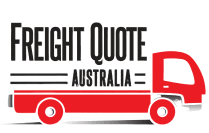Every day millions of consumers across Australia indirectly pay for freight transport expenses that form part of the total price of goods that they purchase. There can be many links in the network that connects goods between producer and consumer, including an interstate freight quote. Where there are circumstances that hamper the smoothness of the transport system, these are usually passed on to consumers. As such, finding ways to increase freight efficiency is highly desirable for consumers, if these savings are then factored into the recommended retail price.
Fuel is a Regular Expense for Transport Companies
Fuel costs are an obvious expense for anyone transporting goods over short and long distances. If these could be reduced, the reductions could potentially be passed on to consumers as genuine savings. Basically, there are only two ways to save money on fuel. The first way is to reduce the number of kilometres which are driven in a day. This is usually not an option for experienced freight companies, as they have to drive certain distance to physically move the goods, and they have probably already worked out the most efficient route. The other way to bring fuel costs down is to optimise the fuel consumption of the vehicle.
Better Roads Would Lead to Reduced Fuel Consumption
The Australian Road Research Board (ARRB) has recently conducted a study on the Newell Highway (which runs from Queensland to Victoria via Dubbo) that shows a connection between fuel costs and road roughness, the Daily Liberal reported last week. The study shows that fuel consumption for heavy vehicles travelling on long Newell Highway distances would fall significantly if the roughest surfaces were upgraded. Faye Wheeler reports that vehicles could reduce their fuel consumption by a quarter, according to ARRB chief Michael Caltabiano. This would also mean bringing down the cost of a once off interstate freight quote, which is good news for online shoppers and others who use this kind of service.
Many Benefits from Improving Roads
Fuel consumption is not the only benefit that would result from an improved Newell Highway. Apart from reducing the risk of accidents on the road and saving lives, savings would be made on maintenance and repairs. Vehicles deteriorate more quickly when exposed extensively to rough roads. Tyres wear out more quickly and everything jolts around more, which is not ideal for the vehicle. Creating smoother roads would reduce heavy vehicle maintenance costs, and in turn these savings could be passed on to the consumer. The Australian Road Research Board study looked at several highways, but found that the Newell Highway was one that could make an immediate difference once improved. The analysis showed that around 30 percent of the road was deemed very rough.
Added Comfort for Truck Drivers and Couriers
Obviously, another aspect to rough roads is the discomfort experienced by long distance couriers and truck drivers. Couriers and truck drivers spend many hours of their day on the road, transporting anything from pallets to dangerous goods freight, and reducing road roughness would clearly benefit them. Long distance trips would be smoother, resulting in added comfort and less noise, and potentially a more enjoyable work day. The safety of heavy vehicle drivers would also be addressed, as the risk of accidents would be reduced. The National Heavy Vehicle Regulator (NHVR) is an Australian government body that enforces heavy vehicle safety in Australia.

